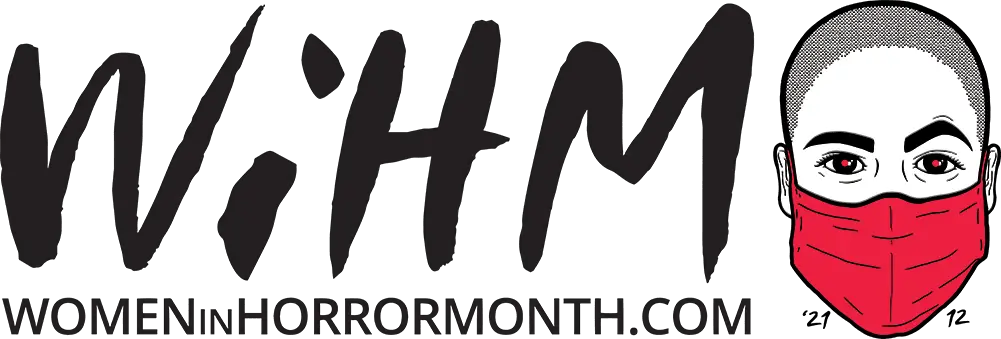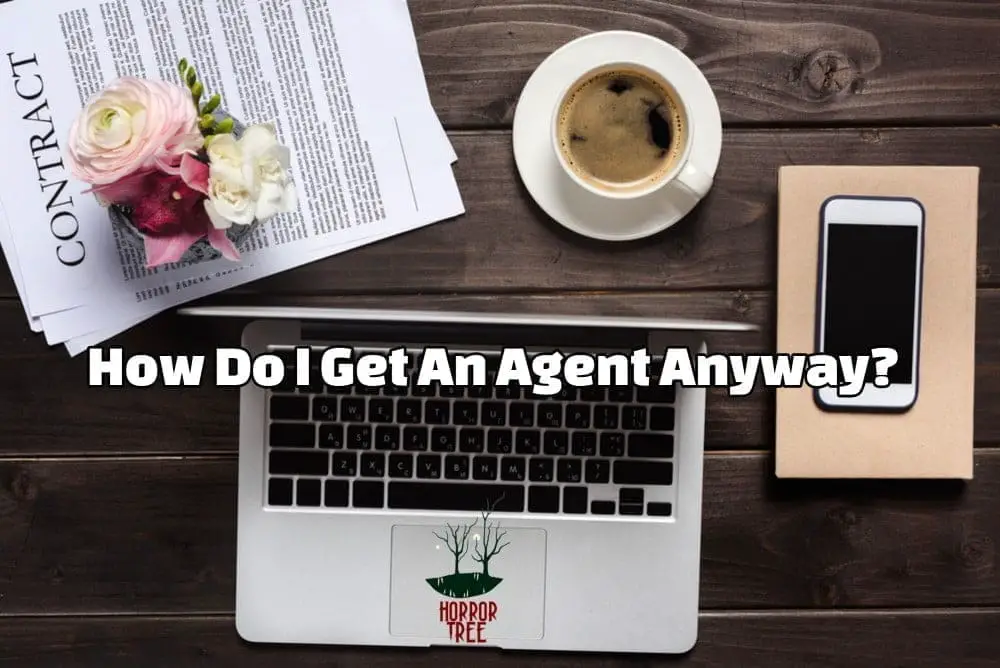
You have followed along and here we are at the fourth and last blog post in this series. Thank you for following.
So, you finished your novel. You edited your novel. You revised your novel. You researched agents. You prepared your materials – query letter, and pages, and you sent off dozens and dozens of emails to agents who were open to queries in your genre – horror.
Now, what do you do?
The waiting game
You wait.
How long do you wait? Well, I’ll tell you, you will wait for a long time and then you will wait some more.
Most agents get dozens of emails a day. Some agents get hundreds of emails a week. What does that mean for you? You will be waiting a long, long time. Sometimes you will receive an auto response that will tell you that your materials have been received and that if you do not receive a response in X number of weeks then consider this a pass.
How long do I wait?
Here is my experience, and I stress – this is just my experience. The writing process, querying process, and publishing process really does vary from person to person.
Some agents will respond to you within minutes and tell you that they are not a good fit to represent your work. If this happens it’s probably just that – your work isn’t a good fit for them. And yes, maybe they do have horror listed on the genres that they represent, but maybe there’s just something not right about your project for them at that time. And that’s OK. You want someone to represent you and your work who is excited about you and your work.
Some agents will get back to you within a few days.
Some agents will get back to you within a few weeks.
Some agents will get back to you within a few months.
Some agents will just not get back to you, and no response is essentially a rejection.
When an agent responds
So what do agents tell you when they get back to you? Remember, agents are very, very very busy people managing established clients, growing clients, new clients, conferences, queries, and of course their lives. Therefore, their responses tend to be brief. If it’s a rejection sometimes the email will just be a line or two telling you the work is not for them. Sometimes, an agent will review your query and pages and will respond to you with exactly why the work is not for them. And look, not all rejections are terrible, horrible things. I have been rejected by agents who I just absolutely adore. I follow them on Twitter and I think they’re smart, and cool, and I want to stay in touch with them. I’ve had agents who were so kind in their rejection and told me thanks but the voice didn’t work for them, or the plot didn’t work for them, or they were looking for a specific genre within horror at that moment and my specific genre of horror was just not a match.
And this is all OK. I want you to know that it’s OK if these are the responses you are getting, because rejections happen.
If an agent is interested in more pages they will respond and tell you how many more pages they would like to see. I’ve had a request for either the first three chapters, first 50 pages or full manuscript. Once I receive a request for more pages, I make sure my pages are properly formatted and I send them off quickly. While I send my materials off quickly I do realize that just because the agent requested more pages, and I’ve sent those pages off quickly, that doesn’t necessarily mean they will read and respond to my new pages quickly. I have sent off requested materials and have not heard back for 3 months or more.
Also, while it’s very exciting that an agent has requested more materials you should still be fully aware that nothing is certain until an agent formally offers you representation. I have had agents request my full manuscript and return with a rejection. It’s typical that an agent will provide you with a reason why they have rejected your full manuscript, but know that technically they don’t have to provide you with a detailed response as to why your manuscript was rejected.
Final, final thoughts
So, here are just a few thoughts. You have submitted your queries and now I ask that you do the following:
- Breathe. Be good to yourself. Your manuscript is out there. There’s nothing you can do about it other than to give it time. It may take days, weeks or months for you to get your responses back.
- Create a spreadsheet. Keep track of who you queried, when, and with what materials. Did you send them just a query, query and first five pages, query and first 10 pages, query and first 50 pages and synopsis?
- Start working on your next project. Yes, really. Publishing takes a long time. It will take some time for you to hear back so you might as well start on your next project. Write some short stories. Outline and draft your next novel. Just start on your next writing project. Stay busy.
- Be professional. I can’t stress this enough. I personally don’t respond back to an agent who has rejected me and my materials because I know they are busy. I know their inboxes are flooded and I want to be considerate of that. When I initially sent in my materials I already said “Thank you for your time and consideration” so I don’t feel like there’s any need for me to say thank you again. I want to be thoughtful and considerate of their time.
- Again, BE PROFESSIONAL. Why am I stressing this? Because publishing is an industry and guess what? These industry professionals know each other. Be kind. Be respectful and be professional because you never know when you will run into these people again in your writing career. An agent who rejected you today may become your agent a few years down the line. An agent who rejected you today may one day become an editor at a publishing company and may come across your manuscript submitted to them by another agent for consideration. So be kind. Be professional, because you never know who you will run into in the future.
How many rejections will I get?
I feel like I can go on and on and I feel like I’ve only glossed over so many of these topics, but there’s one topic that I will leave you with and that many writers talk about – number of rejections. There really is no telling how many rejections you will get before you’re offered representation. You may get two rejections or you may get 700 rejections (yes, I’ve seen someone get 700 rejections before finally landing an agent).
My first novel, SANTA MUERTE received 98 rejections before a publisher picked it up. I then wrote the sequel, THE MISSING, for the same publisher. Then, my poetry collection, POEMS OF MY NIGHT, was picked up quickly by another publisher.
While I had relatively quick successes with these works, I have written several other books that have never gotten off the ground in terms of publishing or representation. My first novel sits in a virtual drawer (on the cloud). It’s a mess of a novel, but I love the story and I would like to return to it one day. Another novel I wrote, NOVEL 4, I pitched at a conference and queried about 90 agents who all rejected it. That novel sits in a drawer as well. I then wrote another novel, NOVEL 5 that just became a mess and I hide it from the world voluntarily. Then, I finished NOVEL 6, and I queried about 90 agents with NOVEL 6 and that novel is the novel where I found an agent who offered me representation. NOVEL 6 still needs work – lots of work, but I’m thankful that I have found a great team that believes in me and my work, and that’s what this is – work. The hard work doesn’t end when you get an agent. The hard work just begins.
So, it took me nearly 300 queries over the course of a few years and a few works to find literary representation. This is not the case for everyone. Some people find literary representation after just a single novel, or after just querying a few people, but yes, for some of us it will take multiple books and hundreds of queries.
So what does this all mean and what am I trying to tell you?
I want to tell you to keep writing.
Keep working on your story and the stories that you want to tell.
I still have a lot to learn about the craft of writing and the business of writing. I’ve had a lot of stressed out nights, but I kept pushing forward and that’s what I’m here to tell you. It’s OK if you write something and you think that it can be better. Make it better. If you queried your dream agent and they come back to you with a rejection look over your query letter, look over your manuscript, is there something that is not working? Is there something that you can make better? If so, make it better. Revise your manuscript and wait a few months and query them again.
Rejection is a part of this business and rejection is OK. You will learn from your rejections and you will get better. Hell, I want to get better. I want to learn more and be a better writer.
Ultimately, I want you to breathe, write, revise, be professional, be respectful and ultimately, don’t give up.
I send you all so much luck! I believe in you.

 My fiction in recent years has become much more personal, writing about true crime – mainly because I have been impacted directly by crime. For example, in my poetry collection Into the Forest and All the Way Through, about missing and murdered women, I wrote about how easy it is to be killed. To disappear. I too was nearly kidnapped years ago, standing on the corner, waiting for a bus, and a man pulled up his car, threw open his car door and told me to get in. He eventually left, but drove back around, opened his door and approached me, directing me to get into the car. I ran into incoming traffic to avoid him. He left. I was fine. But during the daytime hours, in front of a busy street, horror happened to me. Yet, the bus came. I went to work, and it was just another day.
My fiction in recent years has become much more personal, writing about true crime – mainly because I have been impacted directly by crime. For example, in my poetry collection Into the Forest and All the Way Through, about missing and murdered women, I wrote about how easy it is to be killed. To disappear. I too was nearly kidnapped years ago, standing on the corner, waiting for a bus, and a man pulled up his car, threw open his car door and told me to get in. He eventually left, but drove back around, opened his door and approached me, directing me to get into the car. I ran into incoming traffic to avoid him. He left. I was fine. But during the daytime hours, in front of a busy street, horror happened to me. Yet, the bus came. I went to work, and it was just another day. 









